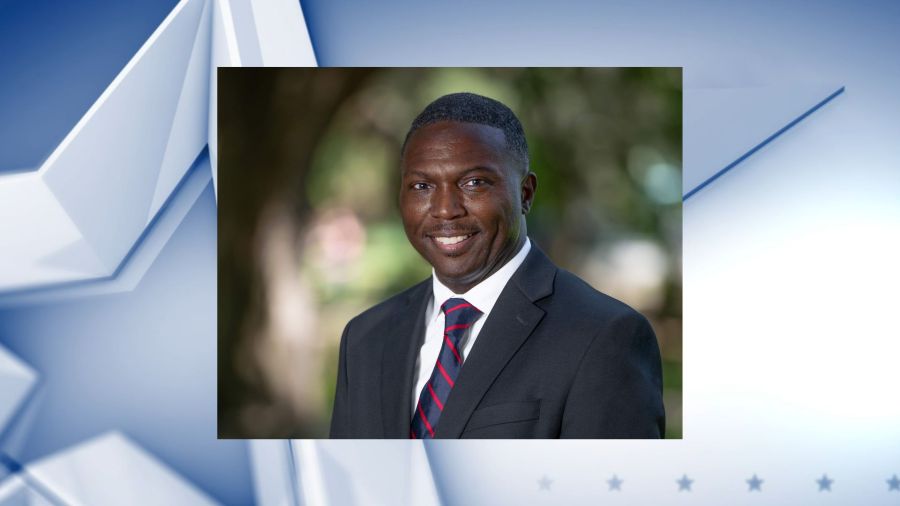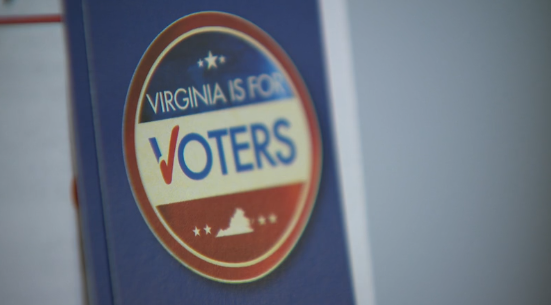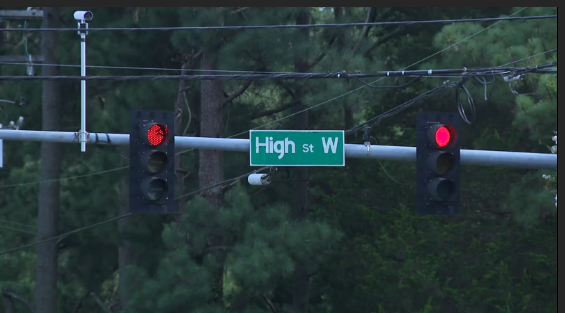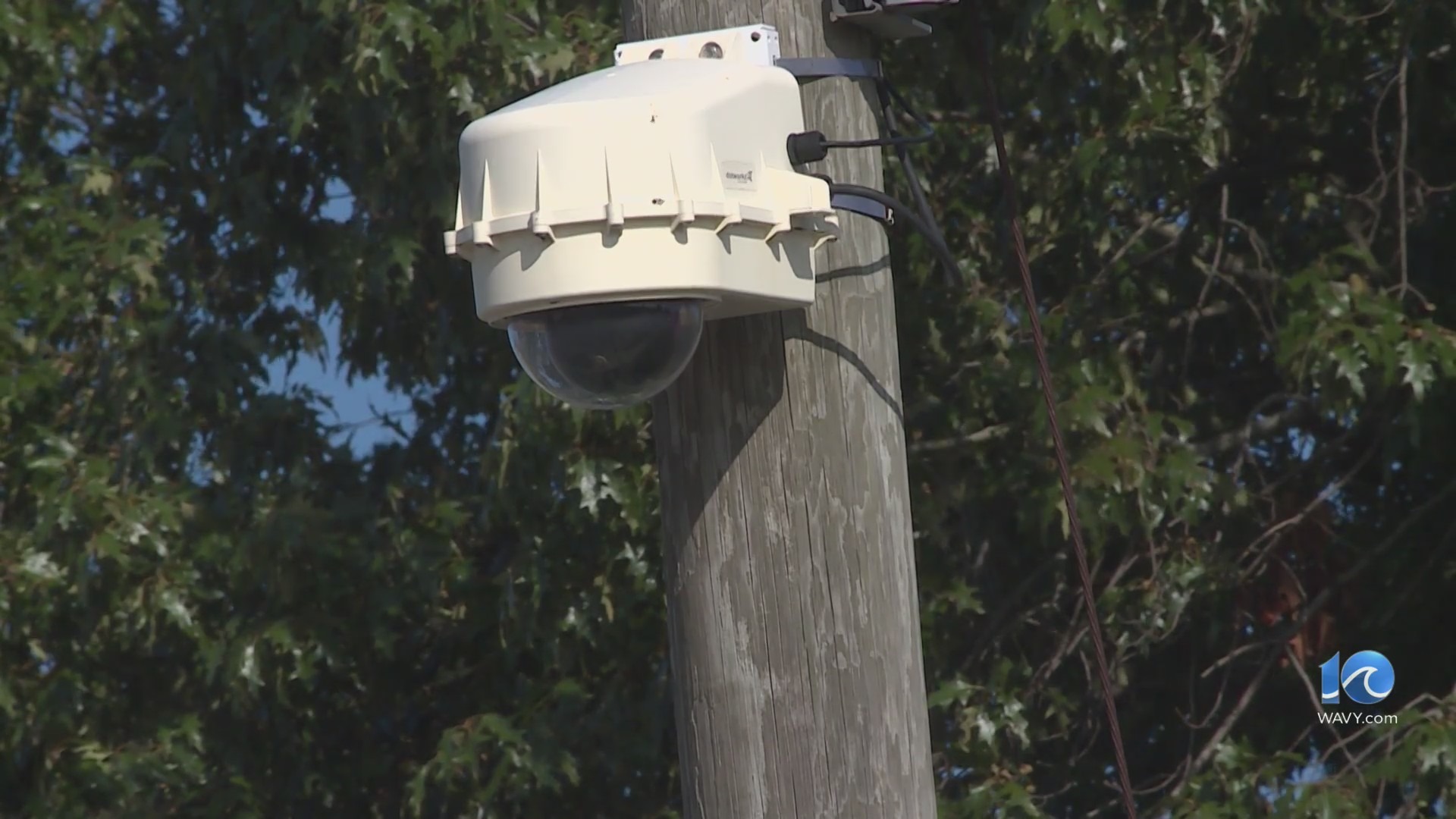L. Jameel Shaheer is a candidate for Chesapeake School Board. His name will appear on the ballot on November 5, 2024.
Shaheer is running against nine challengers for Chesapeake City Council.
The first day of in-person early voting at your local registrar’s office for this election is Friday, Sept. 20, 2024. Click here to see who is on your ballot.
10 On Your Side reached out to all of the candidates running in this race, with a request for a bio and a list of questions to answer. If you do not see the candidate listed with a profile, we did not receive one.

Biography: L. Jameel Shaheer is a N’Awlins native, relocated to So. Norfolk – Chesapeake in search of a great place to live, learn, farm, work and play. He is a dedicated community leader and advocate for educational excellence. With a strong commitment to building equitable and inclusive environments, Jameel has been actively involved in various initiatives aimed at enhancing the quality of education for all students. His experience in education, business and community engagement has equipped him with the skills to address the diverse needs of students, educators, and support staff. He’s an accountant by degree, former educator, Air Force veteran, former New Orleans Firefighter, small business owner, Liberty University MPA/PhD candidate and father of 7.
Why are you running for this office?
I am running for the Chesapeake School Board because I CARE. My commitment is rooted in the following components:
Community Engagement:
I believe in the power of collaboration and communication between the school board, parents, educators, and the broader community. By fostering strong relationships and open dialogue, we can work together to address the unique needs and concerns of our students and schools.
Academic Excellence:
Ensuring every student has access to a high-quality education is a top priority. I will advocate for innovative teaching methods, enhanced STEM programs, and the necessary resources to prepare our students for future success. Academic excellence is the foundation of a thriving community.
Fiscal Responsibility:
It is crucial to manage our budget wisely, ensuring that every dollar spent directly benefits our students and educators. I will work to maximize funding efficiency, secure grants, and allocate resources where they are needed most. This includes proper funding for classroom resources, technology, and extracurricular programs.
Equity and Inclusion:
Every student, regardless of their background, deserves equal opportunities to succeed. I will champion policies that promote diversity, equity, and inclusion, ensuring that all students, educators, school nutrition workers, bus drivers, and janitors feel valued and supported. This involves addressing disparities and creating an inclusive environment where everyone can thrive.
By focusing on these components, I aim to create a school system that not only excels academically but also fosters a strong, inclusive, and supportive community. Because I CARE, I am dedicated to making a positive impact on the lives of all Chesapeake students and staff.
What is the top challenge facing Chesapeake Public Schools, and how would you address it?
The top challenge facing Chesapeake Public Schools is ensuring equitable access to quality education for all students amid diverse socioeconomic backgrounds and varying levels of resources. To address this challenge, I would implement the following strategies:
Resource Allocation:
Conduct a thorough needs assessment to identify resource gaps across schools and ensure equitable distribution of funds, technology, and materials.
Prioritize funding for schools in underserved areas to close the achievement gap.
Professional Development:
Provide ongoing professional development for teachers on culturally responsive teaching, differentiated instruction, and integrating technology effectively in the classroom.
Community and Family Engagement:
Strengthen partnerships with local businesses, nonprofits, and community organizations to provide additional support and resources.
Develop programs to increase parental involvement and support, offering workshops and resources to help families engage with their children’s education.
Support Services:
Expand access to mental health services, counseling, and after-school programs to support students’ overall well-being and academic success.
Implement targeted interventions for at-risk students, including tutoring, mentorship, and enrichment programs.
Data-Driven Decision Making:
Use data analytics to monitor student progress, identify areas of need, and tailor interventions to support student achievement.
Regularly review and adjust policies and programs based on data and feedback from students, parents, and educators.
How do you feel about the politicization of public education?
The politicization of public education is complex and can have both positive and negative impacts. It can bring heightened attention and resources to education, but it can also create significant challenges and divisions.
Challenges:
Divisiveness: Education policies can become battlegrounds for ideological conflicts, leading to divisiveness among communities, educators, and students. This can take away from the primary goal of education, fostering learning and development.
Curriculum Control: Political influence can lead to biased or one-sided curricula that may not represent diverse perspectives. This can affect the quality of education and limit students’ exposure to a broad range of viewpoints .
Resource Allocation: Political agendas can influence how resources are allocated, sometimes prioritizing certain programs or schools based on political considerations rather than educational need. This can exacerbate inequalities within the education system .
Positive Aspects:
Increased Attention: Politicization can bring much-needed attention to education issues, prompting debates and reforms that can lead to improvements in the system .
Policy Innovation: Political engagement can drive policy innovations and new initiatives aimed at improving educational outcomes. Policies focused on technology integration, special education, and vocational training can emerge from political advocacy .
Ways to Address Politicization:
Stakeholder Involvement: Ensuring that educators, parents, and students have a voice in decision-making.
Evidence-Based Policies: Promoting policies based on research and evidence can help mitigate the impact of politicization.
Nonpartisan Oversight: Establishing nonpartisan bodies to oversee education policy can help reduce the influence of political agendas.
How will you still value constituents with whom you disagree with?
Active Listening:
Engage in Open Dialogue: I will prioritize listening to the concerns and viewpoints of all constituents, regardless of whether we agree. This includes holding town hall meetings, forums, and individual conversations to understand their perspectives.
Show Empathy and Respect: Acknowledging the validity of others’ experiences and opinions is essential. Even when disagreements arise, it’s important to respond with empathy and respect.
Inclusive Decision-Making:
Stakeholder Involvement: I will involve a diverse group of stakeholders in the decision-making process, ensuring that different viewpoints are considered and that decisions reflect the needs of the entire community.
Transparency: Keeping the decision-making process transparent helps build trust. I will communicate the reasons behind decisions clearly, providing data and evidence to support them.
Common Ground:
Identify Shared Goals: Focusing on common goals, such as improving educational outcomes and ensuring student well-being, can help bridge differences.
Compromise and Collaboration: Finding areas of compromise and being willing to collaborate on solutions can lead to more balanced and effective policies.
Continuous Learning:
Educate Myself: I will commit to continuous learning about the diverse needs and concerns of the community. This includes staying informed about local issues, attending relevant workshops, and seeking out diverse sources of information.
Feedback Mechanisms: Implementing regular feedback mechanisms, such as surveys and suggestion boxes, allows constituents to voice their opinions and contribute to ongoing improvements.
Representation and Advocacy:
Advocate for All: As a representative, it would be my duty to advocate for the interests of all constituents, even those with whom I disagree.
Promote Equity and Inclusion: By promoting policies that foster equity and inclusion, I can help create an environment where every constituent feels valued and heard.


























































